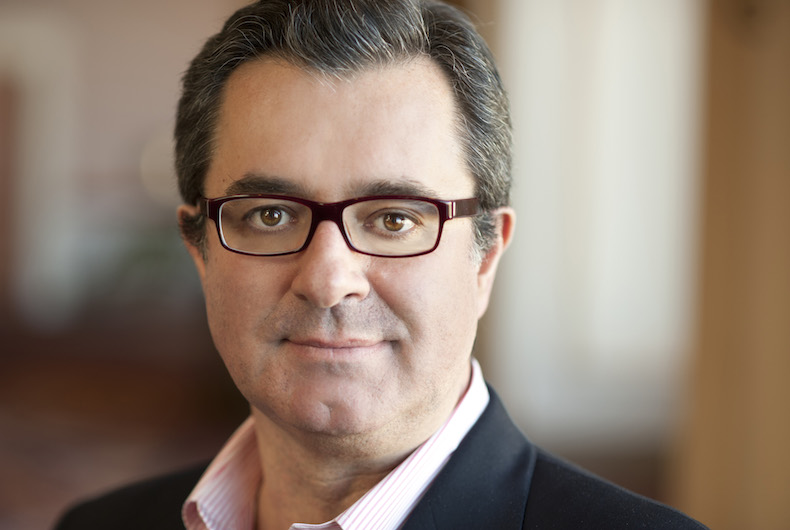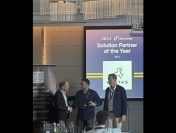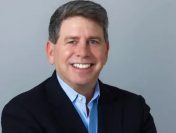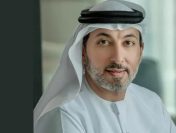
Consolidation, organic growth and an integrated Omnicom offer ––– for OMD Worldwide, these are among some of the key factors that have defined 2016. Unlike some of its siblings and competition, OMD did not have a big global account win in the year but the agency made up for it with its region wise performances, the Middle East & North Africa (MENA) being no exception. Beginning the year with the likes Nissan brands and ending with the likes of flydubai, OMD MENA has had a busy year.
The Arabian Marketer caught up with OMD Worldwide’s Global CEO, Mainardo de Nardis at the agency’s New York headquarters. A view from the capital of the global advertising industry gives Mr de Nardis a vantage point of developments that shape up the marketing and advertising landscape. And he does not believe in holding back his views, irrespective of how controversial a subject that can be. Excerpts:
It looks like OMD has had a good year in MENA. Has the region’s performance been as per expectations?
MENA is growing and doing very well for us. Markets such as KSA, Egypt, Tunisia and Morocco form a very important sub-region for our global clients. It is among the top 10 markets for our clients like Pepsi. The region is very important for sectors such as luxury and automotive, where we have very important global clients. While MENA is growing on the whole for us, I think that our operation is a centre of excellence for OMD globally.
OMD MENA is great in certain things. The team there has done a terrific job in infusing data led solutions for our clients, and in influencing data in every step of our processes. They are technologically savvy and always the first to move into new trends. They have been great in content creation and distribution, and have consequently enlarged the scope of work for our clients. They are best in class in every discipline whether it is programmatic or search or social. But the one thing that I appreciate the most in that team is its ability to bring it all together, and integrate our offer for the benefit of our clients. Dubai and MENA is one of our best examples in the world, I am very proud of the work that they do.
You mentioned data as one of the areas that MENA has followed well on, and it has been an area of focus for you globally as well. How are you looking at data to augment your offer?
Data is fundamental in everything we do but you must understand that we do not manage data for the sake of managing data. We do it in order to do achieve something and I want to focus on that ‘something’. Focusing on data alone is limiting. Data needs to permeate everything we do from the very beginning like creating targets, audiences that are relevant for brands, focusing on planning efforts, buying programmatically in a better way, measuring the performance of marketing in delivering business objectives to our clients and so on. Data is behind everything. The important thing that our clients see is the strategy and the objective. Goals have to be delivered – clients don’t really check the ‘how’ part. We need to elevate the discussion from the language that a few speak to a language that all understand.
But does this require a change in the current structure to allow for data driven solutions –– much as we had seen when digital was just about beginning?
The change in structure is already happening for both clients and agencies. If you look at our structure, we have come a long way from the time when our data & analytics service, Annalect, was a separate division to now, when it is an absolutely integral part of OMD. The same has happened in the case of programmatic. We have got to bring together the culture and the findings of data, and then use technology to pack it all up while talking to the consumer. We cannot have disparate parts of the organization not speaking to each other. OMD has always built on the principle of integration. That is why we have done lesser acquisitions than others because acquisitions are more difficult to integrate internally. That is the only way to deliver the best of what the Omnicom Media Group has to deliver for our clients. I will go even a step further and say integration across Omnicom. Each of the group’s service is a door from which clients can enter. I would like OMD to be one of these doors, and for data to be a contributor in that. Annalect has won global pitches for us.
Did you miss not having one big global win for OMD this year?
OMD is the largest agency globally and we have RECMA to reiterate that. Inevitably because of our size and conflict, we have lesser shots at global pitches. At the same time, we have invested time in consolidating clients in the company across geography and service. Whether you take the example of Pepsi or McDonalds or Nissan or Apple, we have added markets and services for each one of these. Our priority has to be business consolidation. Growth cannot just be organic and has to be from new businesses, which we have done at more regional levels. That being said, we do have a few big things coming through, which we should be able to speak on soon.
This year was a tough one in controversies too – the ANA transparency report, Facebook’s video metric inflation or even Dentsu overcharging its clients. How do you see some of these instances impacting the agency-client relationship?
Transparency is fundamental to clients. Mistakes happen and it is not for us to judge what others do. Some of these signals are not good for the industry because they remind clients that not everything is perfect. I would say the ANA report though was like a good reminder to the industry. We would like to be positive and take it as a learning experience. In the end, our relationships are governed by contracts with every client. And we pride ourselves to ensure that we stick to the written and the unwritten rules of the contract because the contract is a partnership. We have significantly more global clients than anyone else, and we know how important these partnerships are. We cannot have these relationships without transparency. We are going strong and I don’t see anything wrong in talking about some of these issues that are critical for the industry.




